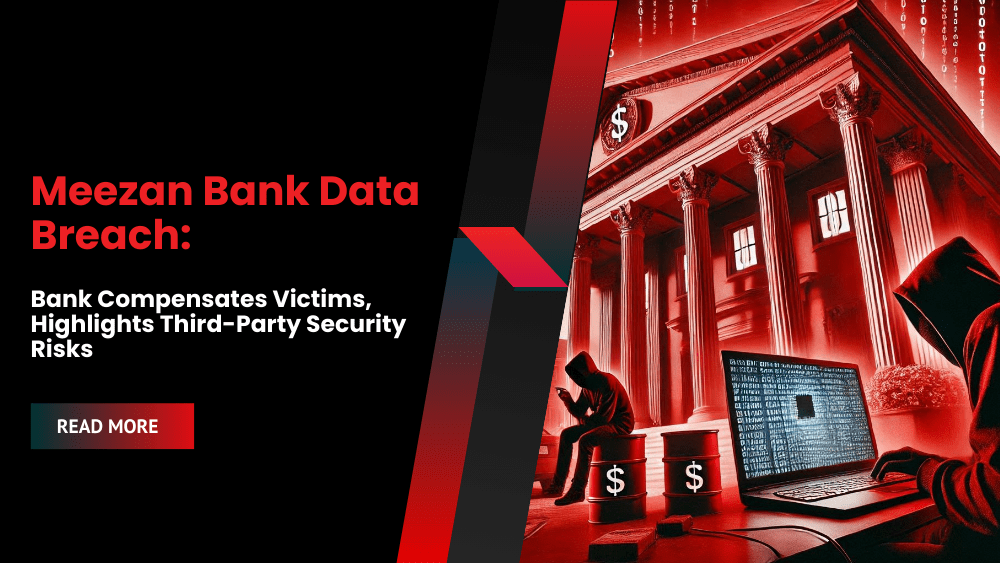Meezan Bank Data Breach: Customer Compensation and Security Concerns
Meezan Bank, a prominent financial institution in Pakistan, recently faced allegations of a third-party data breach resulting in unauthorized debit card transactions. While the bank vehemently denies any compromise of its internal systems, the incident has shed light on the vulnerabilities associated with third-party data security and the escalating concerns surrounding cybercrime in Pakistan.
The Meezan Bank Data Breach Incident
Reports surfaced of unauthorized transactions, including those in Malaysian Ringgit, affecting several Meezan Bank debit cardholders. Many of these fraudulent transactions were linked to online platforms such as Facebook, raising concerns about how customer data was accessed and exploited. The bank confirmed that fewer than ten customers lodged complaints regarding these unauthorized debit card activities.
Importantly, Meezan Bank stated that its own systems remained secure and uncompromised throughout this event. The bank attributed the issue to customers inadvertently sharing their sensitive data on websites or applications that failed to implement adequate OTP (One-Time Password) verification processes.
In response to the alleged meezan bank data breach, the bank swiftly acted to compensate all affected customers. According to the report, all those who experienced unauthorized transactions received full refunds, in line with the bank’s established procedures for data losses stemming from insecure external platforms.
Cybersecurity Vulnerabilities and the Rise of Cybercrime in Pakistan
The Meezan bank data breach incident highlights a broader, more significant issue: the rising tide of cybercrime in Pakistan. The government has acknowledged this growing threat and has proposed amendments to the Prevention of Electronic Crimes Act (PECA) 2016. These proposed changes aim to address existing gaps in the legal framework governing online fraud and data breaches.
However, experts express criticism regarding the government’s inconsistent approach to combating cybercrimes. Recent decisions have reportedly weakened the Federal Investigation Agency’s (FIA) cybercrime wing, with the creation of the National Cyber Crime & Investigation Authority (NCCIA) currently facing an uncertain future. This organizational uncertainty raises concerns about the effectiveness of Pakistan’s overall cybersecurity strategy.
Meezan Bank’s Response and Future Implications
Despite this incident, Meezan Bank, recently recognized as the “Best Bank 2024,” reassured its customers of its continued commitment to secure banking practices. The meezan bank data breach underscores the importance of continuous vigilance and proactive security protocols, not only for financial institutions but also for individuals who must be aware of the risks associated with sharing personal information online.
Meezan Bank continues to address the recent unauthorized debit card transactions, clarifying its security protocols and providing comprehensive advice to customers on protecting their financial information online. While the bank maintains that its internal systems were not compromised, the incident highlights the importance of robust security practices across all online platforms.
Meezan Bank’s Security Posture and Compliance – Bank Refunds Customers through Chargeback
Meezan Bank emphasized its commitment to security, highlighting that it is PCI (Payment Card Industry) certified. All Meezan Bank cards are EMV (Europay, MasterCard, and Visa) chip-enabled and 3D Secure compliant, offering an additional layer of protection against fraudulent transactions.
The bank clarified that the recent disputed transactions were linked to unsecured e-commerce activities where customers may have inadvertently shared their card details on untrusted websites or platforms.
These transactions are being processed through the established chargeback mechanism of international payment schemes, ensuring prompt reimbursement for affected customers. The bank is actively working to compensate all affected individuals.
Customer Safety Advice: Best Practices for Secure Online Banking
To further enhance customer safety and prevent future incidents, Meezan Bank provided the following crucial advice:
- Avoid Untrusted Websites: Refrain from using your debit or credit card on websites that lack proper security measures or appear suspicious. Look for secure website indicators like “https” in the URL and a padlock icon in the browser address bar.
- Secure Wi-Fi Networks: Avoid conducting banking transactions on public Wi-Fi networks, as these are more vulnerable to interception. Use a secure, private network whenever possible.
- Beware of Phishing: Be extremely cautious of phishing attempts, which may involve emails, text messages, or phone calls requesting your card details or OTPs. Legitimate institutions will never ask for this information directly.
- Report Lost or Stolen Cards Immediately: If your card is lost or stolen, report it to Meezan Bank immediately to prevent unauthorized use.









